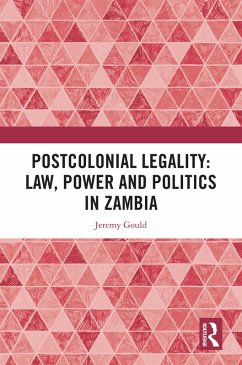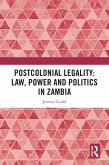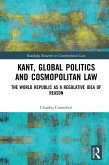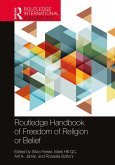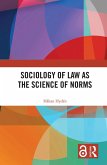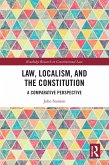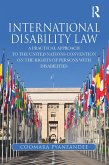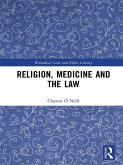Jeremy Gould
Postcolonial Legality: Law, Power and Politics in Zambia (eBook, ePUB)
41,95 €
41,95 €
inkl. MwSt.
Sofort per Download lieferbar

21 °P sammeln
41,95 €
Als Download kaufen

41,95 €
inkl. MwSt.
Sofort per Download lieferbar

21 °P sammeln
Jetzt verschenken
Alle Infos zum eBook verschenken
41,95 €
inkl. MwSt.
Sofort per Download lieferbar
Alle Infos zum eBook verschenken

21 °P sammeln
Jeremy Gould
Postcolonial Legality: Law, Power and Politics in Zambia (eBook, ePUB)
- Format: ePub
- Merkliste
- Auf die Merkliste
- Bewerten Bewerten
- Teilen
- Produkt teilen
- Produkterinnerung
- Produkterinnerung

Bitte loggen Sie sich zunächst in Ihr Kundenkonto ein oder registrieren Sie sich bei
bücher.de, um das eBook-Abo tolino select nutzen zu können.
Hier können Sie sich einloggen
Hier können Sie sich einloggen
Sie sind bereits eingeloggt. Klicken Sie auf 2. tolino select Abo, um fortzufahren.

Bitte loggen Sie sich zunächst in Ihr Kundenkonto ein oder registrieren Sie sich bei bücher.de, um das eBook-Abo tolino select nutzen zu können.
This book interrogates the ideology and practices of liberal constitutionalism in the Zambian postcolony. It focuses on the residual political and governmental effects of an Imperial form of power, embodied in the person of the Republican President, termed here Prerogativism, and examines how this has shaped the postcolonial political landscape.
- Geräte: eReader
- mit Kopierschutz
- eBook Hilfe
Andere Kunden interessierten sich auch für
![Postcolonial Legality: Law, Power and Politics in Zambia (eBook, PDF) Postcolonial Legality: Law, Power and Politics in Zambia (eBook, PDF)]() Jeremy GouldPostcolonial Legality: Law, Power and Politics in Zambia (eBook, PDF)41,95 €
Jeremy GouldPostcolonial Legality: Law, Power and Politics in Zambia (eBook, PDF)41,95 €![Kant, Global Politics and Cosmopolitan Law (eBook, ePUB) Kant, Global Politics and Cosmopolitan Law (eBook, ePUB)]() Claudio CorradettiKant, Global Politics and Cosmopolitan Law (eBook, ePUB)42,95 €
Claudio CorradettiKant, Global Politics and Cosmopolitan Law (eBook, ePUB)42,95 €![Routledge Handbook of Freedom of Religion or Belief (eBook, ePUB) Routledge Handbook of Freedom of Religion or Belief (eBook, ePUB)]() Routledge Handbook of Freedom of Religion or Belief (eBook, ePUB)46,95 €
Routledge Handbook of Freedom of Religion or Belief (eBook, ePUB)46,95 €![Sociology of Law as the Science of Norms (eBook, ePUB) Sociology of Law as the Science of Norms (eBook, ePUB)]() Håkan HydénSociology of Law as the Science of Norms (eBook, ePUB)0,00 €
Håkan HydénSociology of Law as the Science of Norms (eBook, ePUB)0,00 €![Law, Localism, and the Constitution (eBook, ePUB) Law, Localism, and the Constitution (eBook, ePUB)]() John StantonLaw, Localism, and the Constitution (eBook, ePUB)42,95 €
John StantonLaw, Localism, and the Constitution (eBook, ePUB)42,95 €![International Disability Law (eBook, ePUB) International Disability Law (eBook, ePUB)]() Coomara PyaneandeeInternational Disability Law (eBook, ePUB)40,95 €
Coomara PyaneandeeInternational Disability Law (eBook, ePUB)40,95 €![Religion, Medicine and the Law (eBook, ePUB) Religion, Medicine and the Law (eBook, ePUB)]() Clayton Ó NéillReligion, Medicine and the Law (eBook, ePUB)43,95 €
Clayton Ó NéillReligion, Medicine and the Law (eBook, ePUB)43,95 €-
-
-
This book interrogates the ideology and practices of liberal constitutionalism in the Zambian postcolony. It focuses on the residual political and governmental effects of an Imperial form of power, embodied in the person of the Republican President, termed here Prerogativism, and examines how this has shaped the postcolonial political landscape.
Dieser Download kann aus rechtlichen Gründen nur mit Rechnungsadresse in A, B, BG, CY, CZ, D, DK, EW, E, FIN, F, GR, HR, H, IRL, I, LT, L, LR, M, NL, PL, P, R, S, SLO, SK ausgeliefert werden.
Produktdetails
- Produktdetails
- Verlag: Taylor & Francis eBooks
- Seitenzahl: 340
- Erscheinungstermin: 24. März 2023
- Englisch
- ISBN-13: 9780429581649
- Artikelnr.: 67384409
- Verlag: Taylor & Francis eBooks
- Seitenzahl: 340
- Erscheinungstermin: 24. März 2023
- Englisch
- ISBN-13: 9780429581649
- Artikelnr.: 67384409
- Herstellerkennzeichnung Die Herstellerinformationen sind derzeit nicht verfügbar.
Jeremy Gould is Professor Emeritus of Development Studies, and an Adjunct Professor in Social and Cultural Anthropology based at the University of Helsinki, Finland.
Foreword
I
Preliminary issues
1 Problems and paradoxes
Problems
Sources and resources
Paradoxes
Politico-legal paradoxes
Paradoxes of liberalism
Presidential paradoxes
Paradoxes of constitutionalism
2 Unthinking the postcolonial state
Imperial liberalism and postcolonial illiberalism
Constituting (post)colonial government
Misreading liberal power
The neopatrimonial stain
Exception as an art of government
A prerogativist form of power
Prerogativism and the politico-legal domain
The paradoxical demos
Constituent vs constituted power
The elusive exception
3 Constitutionalism as an ethnographic object
The Zambian context
Ethnographic encounters
A makeshift toolkit
Domains of legal knowledge
Doctrinal legality
Socio-legal alternatives
Custom vs law
The ends of law
4 Between the decision and the demos: Activist lawyers and constituent
power
Perspectives on postcolonial constitutionalism
The time and place for legal expertise
Ethics and legal expertise
The prerogativist perspective
The will of the people
On 'going to the people'
Reflections
Legal activism and constitutionalism
The paradox of non-partisan politics
II
A genealogy of postcolonial power
5 Imperial constitutionalism 1924-1996
Introduction
From Northern Rhodesia to Zambia's First Republic
Independence constitution
One-party constitution
Constitutional deadlock
Reactions to the 1996 constitution
Popular constitutional politics
6 The Oasis Forum and the emergence of liberal constitutionalism
Chiluba loses his grip
Lawyers step up
The legalization of the Oasis Forum
The Mwanawasa years and beyond
The 2016 Amendment Act
Constitutional closure: The death of Bill 10
III
Law, politics and unfettered power
Excursus: Redescribing postcolonial power
Colonial emergency and postcolonial jurisprudence
The president's two bodies
The monarch's colonial regent
A profile of imperial power
Adventures of prerogativism in space/time
7 'Lawfully illegal'
Part I: A tale of two trials
The specter of presidentialism
The spoils of security
Act 1: Deposing the DPP
Politics of governance
Act 2: Trials of a president
The matrix of plunder
One crime, two verdicts
Part II: The paradoxical sovereignty of the postcolony
Innocence and guilt
The case for executive interference
The president's (not quite) two bodies revisited
8 In the shadows of prerogativism
Managing the migration of power
A slippery baton
A tale of two tribunals
Disciplining the Patriotic Front
Legalism vs political contingency
Dora Siliya's electoral blues
In the name of exception: The Kabimba Tribunal
Wynter Kabimba's stationary collision
The contours of postcolonial legality
9 The allure of postcolonial legality
Principled pragmatism revisited
A time to sow: The seeds of prerogativism
Nolle controversies
Unfettered discretion?
A time to reap
Liberal absurdities
Progress vs purpose
IV
A new hope?
10 Decolonizing the republic
A constituent presidency?
Another missed opportunity
A transformative jurisprudence?
Professor Munalula dissents
Law's purposes
The power of principles
A postliberal legality?
Postliberal trajectories
11 Coda
The limits of liberal legality
A constituent politics of refounding?
The incrementalist option
The case for a progressive postliberalism
In closing
Annexes
Source materials
Index
I
Preliminary issues
1 Problems and paradoxes
Problems
Sources and resources
Paradoxes
Politico-legal paradoxes
Paradoxes of liberalism
Presidential paradoxes
Paradoxes of constitutionalism
2 Unthinking the postcolonial state
Imperial liberalism and postcolonial illiberalism
Constituting (post)colonial government
Misreading liberal power
The neopatrimonial stain
Exception as an art of government
A prerogativist form of power
Prerogativism and the politico-legal domain
The paradoxical demos
Constituent vs constituted power
The elusive exception
3 Constitutionalism as an ethnographic object
The Zambian context
Ethnographic encounters
A makeshift toolkit
Domains of legal knowledge
Doctrinal legality
Socio-legal alternatives
Custom vs law
The ends of law
4 Between the decision and the demos: Activist lawyers and constituent
power
Perspectives on postcolonial constitutionalism
The time and place for legal expertise
Ethics and legal expertise
The prerogativist perspective
The will of the people
On 'going to the people'
Reflections
Legal activism and constitutionalism
The paradox of non-partisan politics
II
A genealogy of postcolonial power
5 Imperial constitutionalism 1924-1996
Introduction
From Northern Rhodesia to Zambia's First Republic
Independence constitution
One-party constitution
Constitutional deadlock
Reactions to the 1996 constitution
Popular constitutional politics
6 The Oasis Forum and the emergence of liberal constitutionalism
Chiluba loses his grip
Lawyers step up
The legalization of the Oasis Forum
The Mwanawasa years and beyond
The 2016 Amendment Act
Constitutional closure: The death of Bill 10
III
Law, politics and unfettered power
Excursus: Redescribing postcolonial power
Colonial emergency and postcolonial jurisprudence
The president's two bodies
The monarch's colonial regent
A profile of imperial power
Adventures of prerogativism in space/time
7 'Lawfully illegal'
Part I: A tale of two trials
The specter of presidentialism
The spoils of security
Act 1: Deposing the DPP
Politics of governance
Act 2: Trials of a president
The matrix of plunder
One crime, two verdicts
Part II: The paradoxical sovereignty of the postcolony
Innocence and guilt
The case for executive interference
The president's (not quite) two bodies revisited
8 In the shadows of prerogativism
Managing the migration of power
A slippery baton
A tale of two tribunals
Disciplining the Patriotic Front
Legalism vs political contingency
Dora Siliya's electoral blues
In the name of exception: The Kabimba Tribunal
Wynter Kabimba's stationary collision
The contours of postcolonial legality
9 The allure of postcolonial legality
Principled pragmatism revisited
A time to sow: The seeds of prerogativism
Nolle controversies
Unfettered discretion?
A time to reap
Liberal absurdities
Progress vs purpose
IV
A new hope?
10 Decolonizing the republic
A constituent presidency?
Another missed opportunity
A transformative jurisprudence?
Professor Munalula dissents
Law's purposes
The power of principles
A postliberal legality?
Postliberal trajectories
11 Coda
The limits of liberal legality
A constituent politics of refounding?
The incrementalist option
The case for a progressive postliberalism
In closing
Annexes
Source materials
Index
Foreword
I
Preliminary issues
1 Problems and paradoxes
Problems
Sources and resources
Paradoxes
Politico-legal paradoxes
Paradoxes of liberalism
Presidential paradoxes
Paradoxes of constitutionalism
2 Unthinking the postcolonial state
Imperial liberalism and postcolonial illiberalism
Constituting (post)colonial government
Misreading liberal power
The neopatrimonial stain
Exception as an art of government
A prerogativist form of power
Prerogativism and the politico-legal domain
The paradoxical demos
Constituent vs constituted power
The elusive exception
3 Constitutionalism as an ethnographic object
The Zambian context
Ethnographic encounters
A makeshift toolkit
Domains of legal knowledge
Doctrinal legality
Socio-legal alternatives
Custom vs law
The ends of law
4 Between the decision and the demos: Activist lawyers and constituent
power
Perspectives on postcolonial constitutionalism
The time and place for legal expertise
Ethics and legal expertise
The prerogativist perspective
The will of the people
On 'going to the people'
Reflections
Legal activism and constitutionalism
The paradox of non-partisan politics
II
A genealogy of postcolonial power
5 Imperial constitutionalism 1924-1996
Introduction
From Northern Rhodesia to Zambia's First Republic
Independence constitution
One-party constitution
Constitutional deadlock
Reactions to the 1996 constitution
Popular constitutional politics
6 The Oasis Forum and the emergence of liberal constitutionalism
Chiluba loses his grip
Lawyers step up
The legalization of the Oasis Forum
The Mwanawasa years and beyond
The 2016 Amendment Act
Constitutional closure: The death of Bill 10
III
Law, politics and unfettered power
Excursus: Redescribing postcolonial power
Colonial emergency and postcolonial jurisprudence
The president's two bodies
The monarch's colonial regent
A profile of imperial power
Adventures of prerogativism in space/time
7 'Lawfully illegal'
Part I: A tale of two trials
The specter of presidentialism
The spoils of security
Act 1: Deposing the DPP
Politics of governance
Act 2: Trials of a president
The matrix of plunder
One crime, two verdicts
Part II: The paradoxical sovereignty of the postcolony
Innocence and guilt
The case for executive interference
The president's (not quite) two bodies revisited
8 In the shadows of prerogativism
Managing the migration of power
A slippery baton
A tale of two tribunals
Disciplining the Patriotic Front
Legalism vs political contingency
Dora Siliya's electoral blues
In the name of exception: The Kabimba Tribunal
Wynter Kabimba's stationary collision
The contours of postcolonial legality
9 The allure of postcolonial legality
Principled pragmatism revisited
A time to sow: The seeds of prerogativism
Nolle controversies
Unfettered discretion?
A time to reap
Liberal absurdities
Progress vs purpose
IV
A new hope?
10 Decolonizing the republic
A constituent presidency?
Another missed opportunity
A transformative jurisprudence?
Professor Munalula dissents
Law's purposes
The power of principles
A postliberal legality?
Postliberal trajectories
11 Coda
The limits of liberal legality
A constituent politics of refounding?
The incrementalist option
The case for a progressive postliberalism
In closing
Annexes
Source materials
Index
I
Preliminary issues
1 Problems and paradoxes
Problems
Sources and resources
Paradoxes
Politico-legal paradoxes
Paradoxes of liberalism
Presidential paradoxes
Paradoxes of constitutionalism
2 Unthinking the postcolonial state
Imperial liberalism and postcolonial illiberalism
Constituting (post)colonial government
Misreading liberal power
The neopatrimonial stain
Exception as an art of government
A prerogativist form of power
Prerogativism and the politico-legal domain
The paradoxical demos
Constituent vs constituted power
The elusive exception
3 Constitutionalism as an ethnographic object
The Zambian context
Ethnographic encounters
A makeshift toolkit
Domains of legal knowledge
Doctrinal legality
Socio-legal alternatives
Custom vs law
The ends of law
4 Between the decision and the demos: Activist lawyers and constituent
power
Perspectives on postcolonial constitutionalism
The time and place for legal expertise
Ethics and legal expertise
The prerogativist perspective
The will of the people
On 'going to the people'
Reflections
Legal activism and constitutionalism
The paradox of non-partisan politics
II
A genealogy of postcolonial power
5 Imperial constitutionalism 1924-1996
Introduction
From Northern Rhodesia to Zambia's First Republic
Independence constitution
One-party constitution
Constitutional deadlock
Reactions to the 1996 constitution
Popular constitutional politics
6 The Oasis Forum and the emergence of liberal constitutionalism
Chiluba loses his grip
Lawyers step up
The legalization of the Oasis Forum
The Mwanawasa years and beyond
The 2016 Amendment Act
Constitutional closure: The death of Bill 10
III
Law, politics and unfettered power
Excursus: Redescribing postcolonial power
Colonial emergency and postcolonial jurisprudence
The president's two bodies
The monarch's colonial regent
A profile of imperial power
Adventures of prerogativism in space/time
7 'Lawfully illegal'
Part I: A tale of two trials
The specter of presidentialism
The spoils of security
Act 1: Deposing the DPP
Politics of governance
Act 2: Trials of a president
The matrix of plunder
One crime, two verdicts
Part II: The paradoxical sovereignty of the postcolony
Innocence and guilt
The case for executive interference
The president's (not quite) two bodies revisited
8 In the shadows of prerogativism
Managing the migration of power
A slippery baton
A tale of two tribunals
Disciplining the Patriotic Front
Legalism vs political contingency
Dora Siliya's electoral blues
In the name of exception: The Kabimba Tribunal
Wynter Kabimba's stationary collision
The contours of postcolonial legality
9 The allure of postcolonial legality
Principled pragmatism revisited
A time to sow: The seeds of prerogativism
Nolle controversies
Unfettered discretion?
A time to reap
Liberal absurdities
Progress vs purpose
IV
A new hope?
10 Decolonizing the republic
A constituent presidency?
Another missed opportunity
A transformative jurisprudence?
Professor Munalula dissents
Law's purposes
The power of principles
A postliberal legality?
Postliberal trajectories
11 Coda
The limits of liberal legality
A constituent politics of refounding?
The incrementalist option
The case for a progressive postliberalism
In closing
Annexes
Source materials
Index
